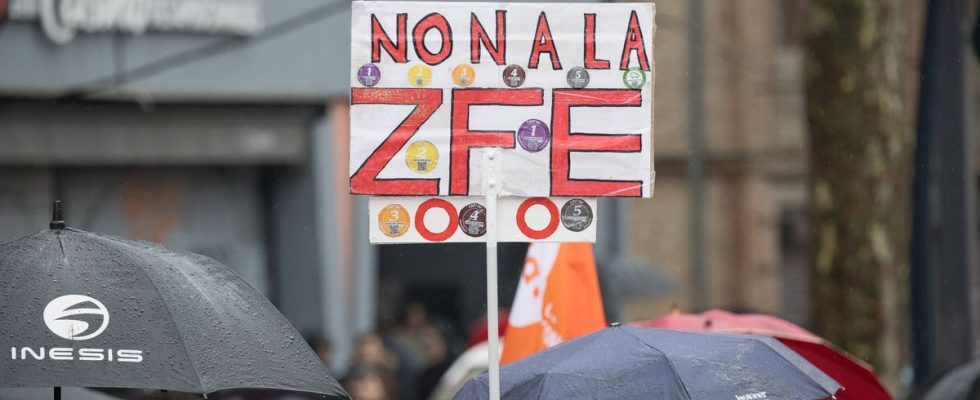Low emission zones (ZFE) are far from unanimous. An online consultation launched from April 17 to May 14 on the subject shows that 86% of individuals are against their deployment in urban areas, as provided for by law. More than 51,300 citizens responded to the consultation, a “record” according to the senators who reported these results on Thursday. 93% of respondents are individuals, the remaining 7% professionals.
“This” success “testifies to the many concerns that this system generates among the French, even if it is a consultation based on the principle of volunteering and not a representative survey”, explained during a point urges the senator of the Alpes-Maritimes Philippe Tabarot (LR), rapporteur of the control mission on the ZFEs which must deliver its conclusions in mid-June.
Eleven metropolises already concerned
A generalization of the zones which tend to fight against air pollution is planned by 2025 in the 43 agglomerations of more than 150,000 inhabitants. To date, eleven metropolises, the first of which were Lyon, Grenoble and Paris, have their ZFEs with different timetables.
In total, 86% of individuals and 79% of professionals who answered the twenty or so questions asked by the senators say they are opposed to the deployment of EPZs. “This is a technocratic measure which, moreover, creates a real break in equal access to the city center depending on whether you are well off or not”, we read among the testimonies.
Inequalities in transport
Among the lessons identified by a data specialist, the further a respondent lives from the center of the conurbation, the more he tends to be unfavorable to EPZs. Only 8% of the inhabitants of rural municipalities are in favor of it, against 23% of the inhabitants of the city centre. The fact of having alternative solutions to the car also strongly influences the answers. Finally, the feeling varies a lot according to socio-professional category, 25% of executives being in favor of EPZs against 11% of employees and 4% of manual workers.
The first obstacle to the deployment of EPZs lies in the cost of acquiring clean vehicles, considered too high for 77% of individuals, given the insufficient accessibility of metropolitan areas from peri-urban or rural areas (51%) and the lack of alternative transport offers (42%). Despite the threat of a fine in the long term, 83% of individuals do not plan to change vehicles. “It is obvious that there is a desynchronization between the ZFE calendar and the progress of alternatives to the car, and the idea is to say that we must synchronize the acceleration of the accompanying measures”, said commented Philippe Tabarot.

